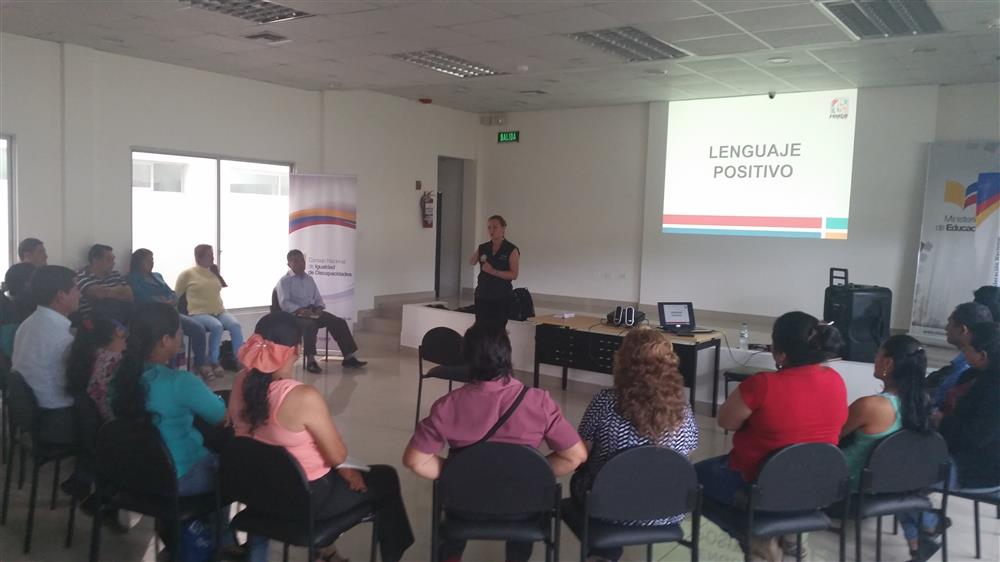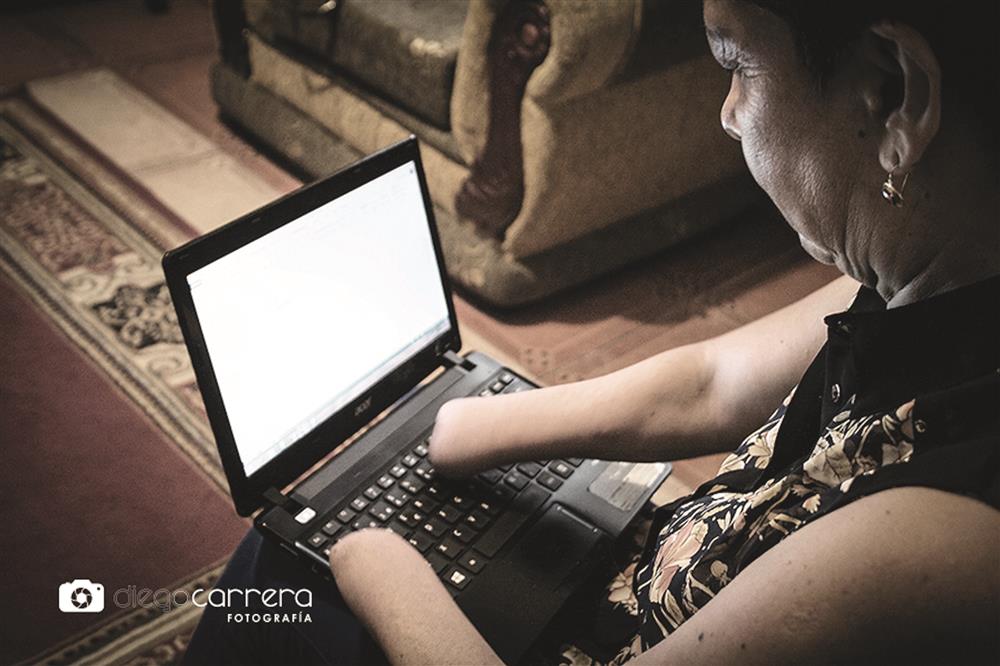All-Sector-Cooperation creating jobs in thousands of companies
- Solution
- Labour Integration Service (SIL) of 2006 National Federation of Ecuadorians with Physical Disabilities (FENEDIF), in partnership with CONADIS, Petroamazonas EP and others, Ecuador
- Organization
- FENEDIF - National Federation of Ecuadorian with Physical Disability
- Country of Implementation
- Ecuador
- Region
- Latin America & Caribbean
- Subregion
- South America
- Start Year
- 2005
- First published
- 31.01.2017

Solution details
People
“At the beginning it wasn’t easy, but we managed thanks to SIL which supported us a lot with awareness raising and workplace support.” Vladimir Vásquez, Administration and Finance Manager, SONDA Ecuador
By orienting its users to find a job, by providing them with punctual training and placement assistance, and by working together with the entire socio-labour spectrum, the Ecuadorian Labour Integration Service offers a wide array of services to support persons with disabilities to access the labour market, especially disabled women and youth. This effort has led to some 12,900 people now working in 8,355 public and private enterprises.
Problems Targeted
Ecuador’s Labour Integration Service (SIL) of 2006, implemented by the Federation of Ecuadorians with Physical Disabilities (FENEDIF), is a partnership of the Government, NGOs, and companies to promote the inclusion of persons with disabilities in the open labour market. The service includes employment orientation, labour promotion, capacity-building/training, and psychological support as well as work integration monitoring. SIL also addresses employers directly and assists them to comply with their legal obligations. Since 2006, SIL has trained some 50,000 persons with disabilities and has sensitized more than 36,000 people on disability issues through public outreach activities.
Solution, Innovation and Impact
Using a validated methodology SIL has implemented a process of labour integration that has proven to be flexible and that can be adapted to many contexts. Person-centred service SIL’s philosophy privileges training, information, orientation, promotion, and technical and human accompaniment to obtain full labour integration and to decrease labour drop-out rates. Changing mind-sets The programme focuses on overcoming mental barriers for both disabled persons and non-disabled persons by raising awareness and providing guidance and information about disability and accessibility.
Funding, Outlook and Transferability
By translating the Labour Code into practice, SIL produces social benefits that also have an impact on the national GDP. In 2016–2017, SIL will be strengthening its training, sensitising potential employers, and boosting self-employment.
Media
Life Story

THE STORY OF YOLANDA, EMPLOYED AT THE LABOUR INTEGRATION SERVICE
“I tell them that they must persist in their job interviews.”
“I’m Yolanda Viera Zalazar, now 54 years old. When I was just six my mother took me to a nursery because she had to travel to visit her sick mother in another town. In this nursery a man came to make some pyrotechnical games, but he forgot some of his equipment in a room. My friends and I entered into the room and started to play with the equipment when it exploded in my hands._x000D_Today I work for Ecuador’s Labour Integration Service, where I help persons with disabilities to find a job. This is the most important part of my life – to help persons with disabilities, to tell them that we can be useful to society and that we mustn’t allow ourselves to be discounted. I tell them that they must persist in their job interviews – not only to help themselves but to help their families a well. Currently I am studying English, and my dream is to obtain a college degree, even at my advanced age. If I couldn’t do it when I was young, I will do it today – and I will do it, because it is useful to have a degree. I want to continue to work and to help people, and I thank my colleagues and friends for supporting me. The only things that persons with disabilities need are love and understanding, and I think it is beautiful to work towards those goals.”
Related information
- Connections
- 1
-
Organization